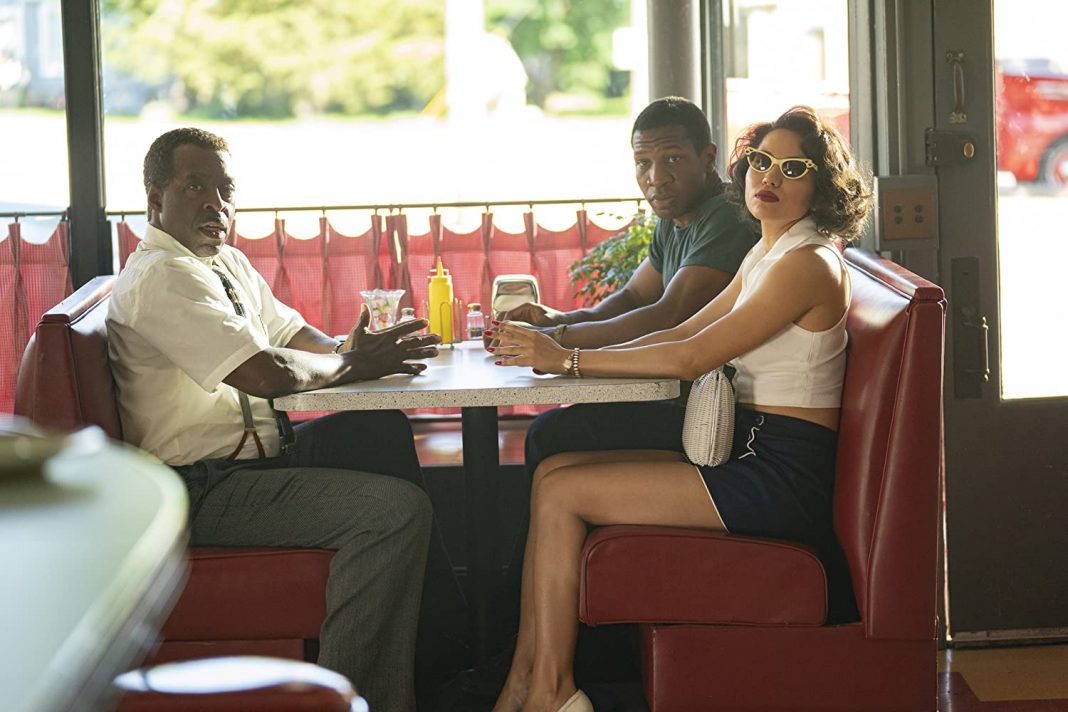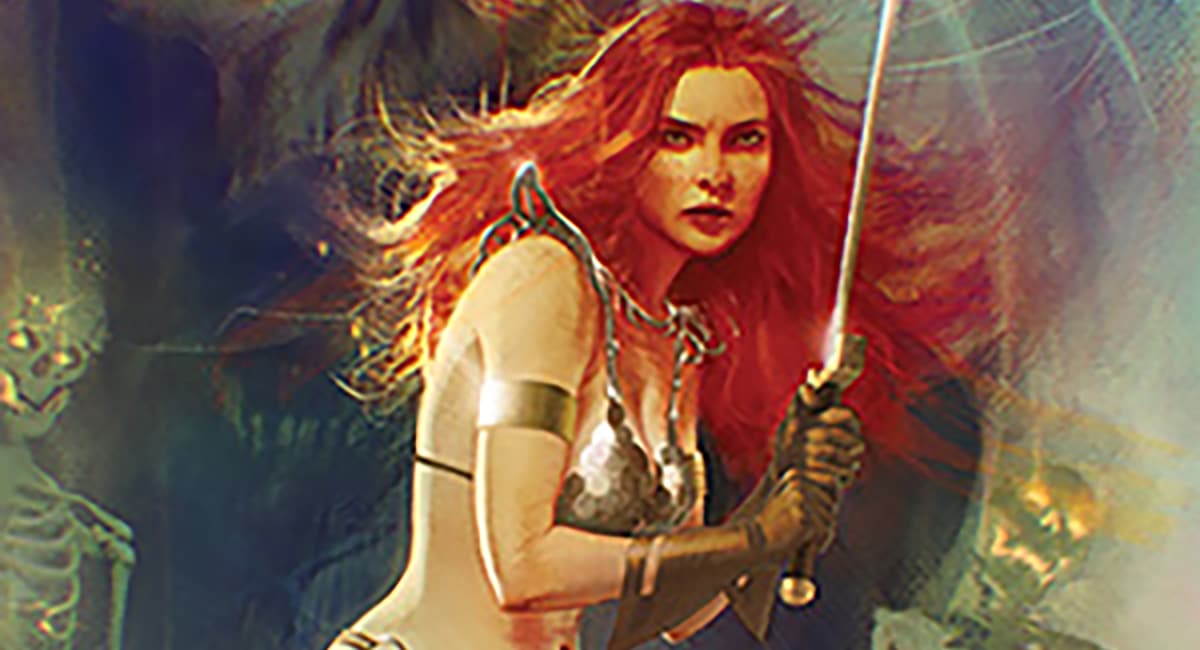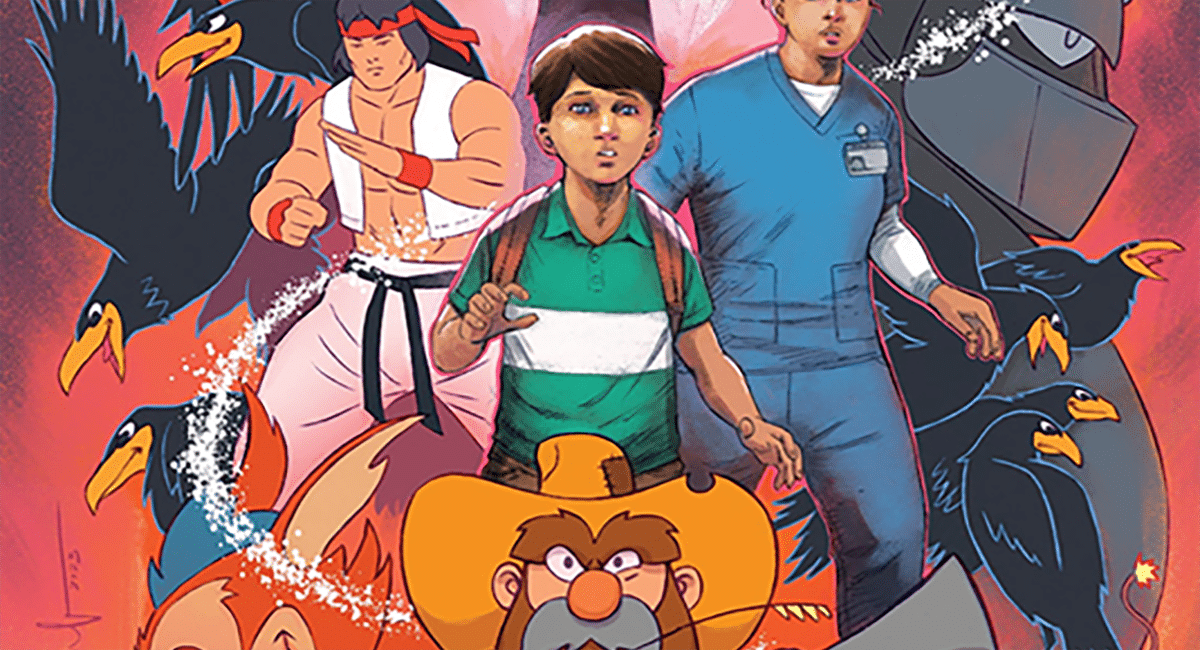Lovecraft Country is a science fiction horror mashup that centers on an educated African-American family looking to take back what’s rightfully theirs, while combating the throes of racism. The television adaptation is based on the novel of the same name by Matt Ruff (The Mirage) but reimagined and fully rounded out by showrunner Misha Green (Underground). It follows Korean War veteran, Atticus “Tic” Freeman (Jonathan Majors), who receives a mysterious letter that sends him on a journey to reclaim his birthright. Bringing along his family and friends, they encounter mayhem, magic, and a whole host of characters and monsters along the way.
The Beat spoke to Misha Green about the intersection of queerness & blackness in the horror space, how music helps push the narrative, how they wanted to define the series beyond the supernatural, and so much more!
On how horror works in conversation with blackness and queerness, Green shared: “You know, being an ‘other’ in this world, you’re walking around in a horror movie at all times, you’re always on edge and wondering when the monster is going to jump out and get you. I feel like that’s the experience of African-Americans and queer people in America. So, for me, it’s not a hard step into a horror movie because I’ve always lived in a horror movie, you know, and I think that is why it’s always been my favorite genre.”
On adapting this body of work for television, Green told us: “Every character was a joy to flesh out for this adaptation. Matt created such interesting characters on the page, that it was easy to take them to TV. What we talked a lot about in development is that at the end of the day, this is a family drama. And we wanted to focus on what it is about these people in this family and what secrets and shame that they have to unpack to come together to reclaim their legacy.
“So, we talked a lot about layers, mystery, and unpacking that because no one is ever what they seem right when you meet them. Throughout the 10 episodes, we wanted to thoroughly understand that and not let anybody off the hook. I think it’s a little easy to do that now, especially in the 1950’s you’re grappling with a different worldview than you have currently, and we wanted to kind of parallel and understand that maybe we don’t have that open view we have now that we think we do.”
On what was important as a storyteller to define the series beyond monsters and magic, Green said: “Ooh what if it was just monsters and magic? (Laughs) A theme that is always in my head and why I love the horror genre is because it addresses what we’re willing to do for metaphorical and physical survival. That is an exploration for every character. How far are you willing to go to stake your claim? Your legacy? To stake who are you as a person and say, ‘I’m worthy to be here?’
“That’s something I see people struggling with a lot and I struggle with it a lot. How do you make sure that you stand your ground and you find your place in the world, even if that place is not the place everyone else tells you it’s supposed to be? For me, TV is character-driven and those are the types of characters I want to watch. When horror works for me, I am there with the character and I am feeling just as nervous as they are.
“So, I said to every writer in our room, get prepared for therapy. We’re going to feel icky. We’re going to be like, oh, we don’t want to go there. But I feel like it’s important to go there because that’s when you’re sharing something, saying that we’re not alone. We’re all fucking unbalanced in our own little heads, but that doesn’t mean we don’t get to stand and be counted.”
On how much of a deep dive into H.P. Lovecraft she did & what other horror films influenced the show, Green added: “I’m a huge horror fan, so for me, there was not a lot of research because I’ve been waiting so long to take all of this stuff in my head that I know and put it out there. But in terms of the writer’s room, we had a syllabus for each episode, that included movies and the literary canon that we had to go through because each episode had its own little thing. So that was exciting because then I got to revisit all the stuff I love and try to persuade the writer’s room to love it too and that was super fun.
“I was familiar with H.P. Lovecraft because I’m such a horror fan and I have read his stories before and I was familiar with his history as a racist as well. So, I had never been like, oh my God, H.P. Lovecraft is amazing. But you can see where he influenced so much of the genre. And I think that’s one of the things that was exciting about Matt’s book too, was this idea of reclaiming and honoring the contributions he made to the genre, but not pretending that he wasn’t a massive racist, which is just in his text as well. When you read Lovecraft, you can’t pretend you don’t see it. So, it felt like a moving forward and that’s what we want to do with the show as a whole, is to pay homage, build upon that and make it feel like Lovecraft Country, and also contribute to this genre we love so much.”
On the importance of changing the main antagonist from a white man to a white woman in the show, Green shared: “It was just an interesting path to go down. We were using Matt’s novel as a beautiful platform. From that platform, we investigated and talked about each character and relevance with what we’re doing and across 10 episodes, what we’re excited to watch. When I read the book, I immediately thought this character would be so interesting if she were a girl in this world, because she’s also being oppressed. That doesn’t make it OK for her to oppress other people, but yeah. Plus, there is something in episode 5 that sold it for me all around and I knew it was going to be amazing and work really well.”
On partnering with Jordan Peele and J.J. Abrams, Green told us: “Well, they weren’t really on the ground because they were doing a little movie called Us and a little Star Wars movie at the time. But what was great was that Jordan and I talked about this project very early on. It was season two of Underground for me, and he was just making Get Out. So, when we met we totally vibed and he invited me to watch Get Out and I was like, oh my God, this is amazing. Where this idea that horror is the metaphor for the emotional thing, for the truth, is an idea we were both playing with at the time.
“And then J.J. came aboard and helped me with this world of bigger budget film-making and of world-building, where he was pointing the way. He was recommending VFX houses and staff and helping me to understand and think about how I should create these monsters. So, for both of them, I think that, whereas they weren’t on the ground, they were providing the cover for me to play around in this world, which would have never been possible had Get Out not existed, had J.J. not been J.J. and created Bad Robot and all that stuff.”
On the choice and use of music to continue to drive the narrative, particularly gospel music to help one character own her power, Green said: “Music is another character and over the course of the 10 episodes, we talk a lot about Leti Lewis (Jurnee Smollett)’s journey back to her faith and her religion, so it just felt like a natural extension. You know, gospel music is amazing. I listen to gospel music all the time just in my apartment when I need to feel better, let me get into this. And I’m not necessarily religious, but I can still feel the spirit when that comes on.
“So, I feel like that was a natural decision of being like now we get to hear and use all of this gospel music that people aren’t necessarily familiar with and should be. During episode 3 specifically, we wanted to layer the music across the episode in a way that feels like the DNA of the episode that it always was. So, as we were producing the show, we found our musical footing along the way.”
Lovecraft Country premieres this Sunday, August 16th at 9pm EST on HBO.








